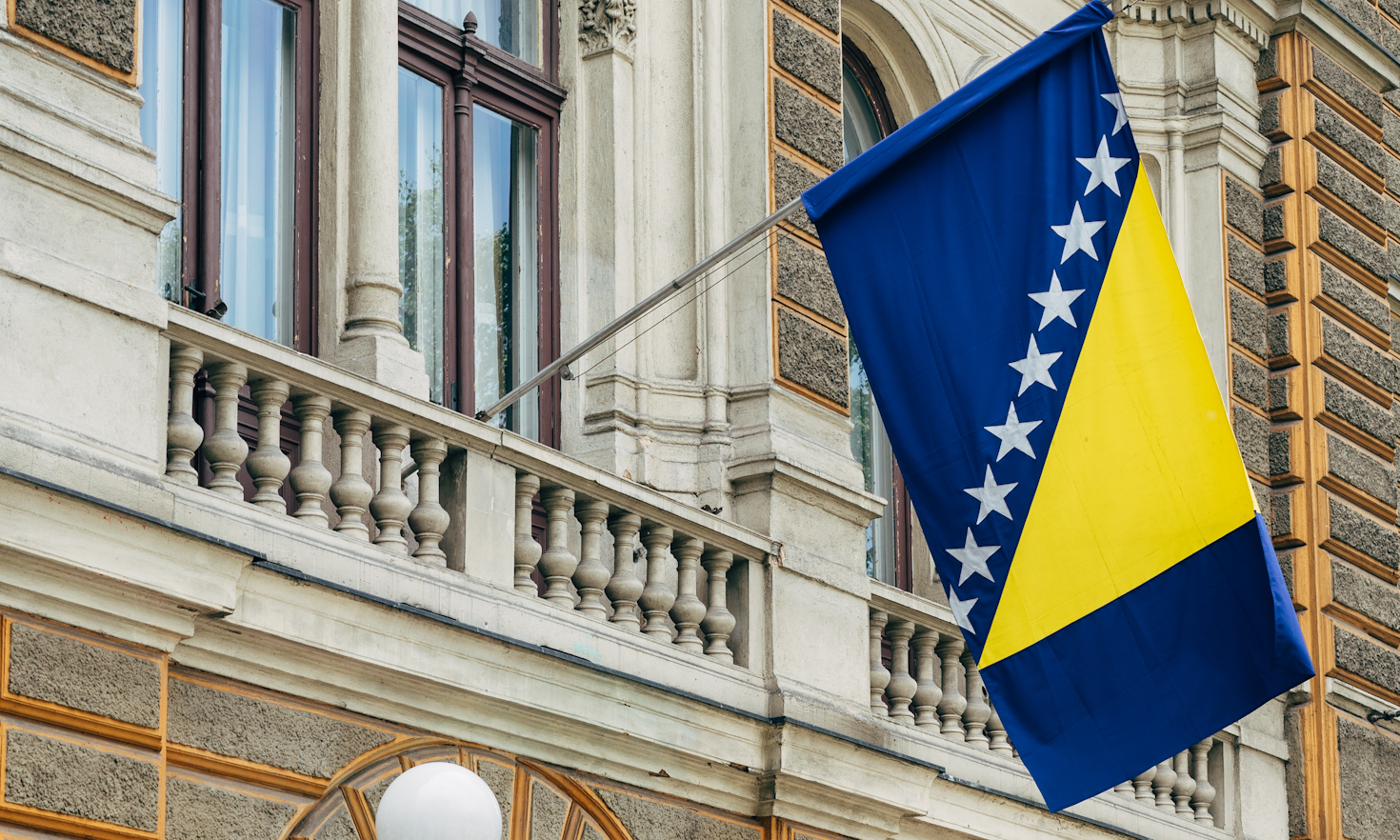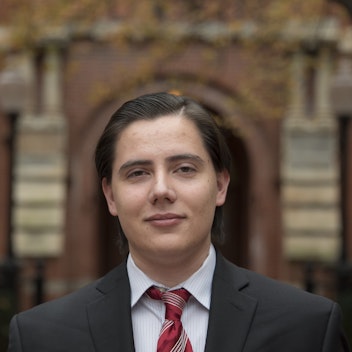
Bosnia and Herzegovina (BiH) is facing its most serious political crisis since the end of the war in 1995. Due to failed electoral reform negotiations, there is a potential threat that Croat parties might boycott state institutions and block the budget from being passed. This would prevent the 2022 general elections from taking place in October. Amidst the threat of secession by the main Serb parties, this political crisis could lead toward complete institutional erosion and effective dissolution of the state, which has been propped up by international actors for the last 26 years.
Political representation lies at the heart of these issues. The current system of ethnic quotas for most higher political offices is discriminatory to the 3.7% of BiH’s population who do not identify as one of the three constituent nations (referred to as “Others” in BiH), as ruled by the ECHR in five cases (Sejdic-Finci, Zornic, Pilav, Slaku, Pudaric). This political system is also riddled with many loopholes that allow relative majority constituent nations to elect political representatives of relative minority constituent nations, effectively stripping away the veto rights of other nations in cantons and entities in which they are a relative minority. This practice was challenged by the Constitutional Court of BiH in 2016 Ljubic ruling. However, the ruling has still not been implemented due to the refusal of Bosniak parties to reform the electoral system.
The current political system is not only discriminatory and frustrating for all parties, but it is also highly inefficient. BiH, which is one of Europe’s poorest states, has only around 2.6 million residents but a staggering 149 ministers in 13 governments, nine presidents and vice presidents and 613 MPs. BiH’s political system is a maze of overlapping institutions ripe for corruption and political patronage, at the expense of citizens who are financing all this needless bureaucracy. However, there is a feasible solution for both BiH’s discriminatory political system and its bureaucratic chimera – becoming a simple federal state such as the EU states of Austria, Belgium, and Germany.
Summary of the proposal
The proposed constitutional reforms would eliminate all political positions allocated by national or ethnic quotas in Bosnia and Herzegovina. Instead of the two entities and three constituent nations currently represented in political institutions through national quotas, BiH would be made up of three discontinuous federal regions and a federal capital territory in Brcko. These four autonomous units would follow the areas of the four electricity suppliers in BiH. This reform would reduce the overall senior-level administration (presidents, ministers, and MPs) by 75%, from 771 to 195, as well as eliminate many overlapping institutions and bureaucratic posts. It would save approximately 50 million Euros per year on salaries alone, not to mention the savings in streamlining lower-level administration. This funding could be redirected towards education and healthcare. The reform also implements all five ECHR rulings, and it makes the Ljubic ruling of the Constitutional Court of BiH obsolete. Everyone in the country could run for any post regardless of their national or any other self-identification. The country would function as a typical European federal state, enabling its accession to the EU and a path towards closing the OHR and gaining full sovereignty.
Four federal units
Area and capitals
The four proposed federal units - three discontinuous federal regions and the federal capital territory of Brcko - are based on the areas of four public electricity providers. These areas also coincide with the areas of the three postal and telecommunication providers in the case of the three federal regions. Federal regions would be named after major rivers: Neretva-Sava – Area of Elektroprivreda HZHB, 10,000 km2 (19.5% of BiH), capital Mostar Vrbas-Drina – Area of Elektroprivreda RS, 24,600 km2 (48% of BiH), capital Banja Luka Una-Bosna – Area of Elektroprivreda BiH, 16,200 km2 (31.5% of BiH), capital Sarajevo Federal capital territory Brcko – Area of Komunalno Brcko, 400 km2 (1% of BiH) The three federal regions would regulate language issues and oversee the protection of cultural and national identities of the nation that is the majority in that region. Two minority nations in each region would have the same minority rights, including education in their own language and preservation of culture and identity, as the other national minorities such as Italians, Jews, Roma, Ukrainians, etc.
Map of the four public electricity providers in BiH

Demographics
The population (according to the 2013 census) of the four federal units and the number of representatives in BiH’s House of Representatives (out of 42) elected in each federal unit are: Neretva-Sava (6 representatives)

Vrbas-Drina (15 representatives)

Una-Bosna (20 representatives)

Federal capital territory Brcko (1 representative)

Proportion of the three nations and Others in each federal unit out of their total population in BiH:

85% of all Bosniaks would live in Una-Bosna, 74% of all Croats would live in Neretva-Sava, and 92% of all Serbs would live in Vrbas-Drina, giving each of the three nations a federal region where most of their members would live and in which they would be the majority population.
The reduction of senior-level administration

Total senior positions eliminated: 6 presidents and VPs, 113 ministers, 457 MPs, or 576 positions in total (75% reduction).
Parliamentary Assembly of BiH would be renamed Stanak, the name of the first parliament of BiH during medieval times. By eliminating municipalities smaller than 5,000 inhabitants and reducing the number of councilmen in local councils, the number of municipalities could be reduced from 143 to 116 and the number of local councilmen could be reduced by a third, from roughly 3,000 to 2,000, significantly reducing the expense of local-level administration. Brcko residents could choose in which federal region to vote for presidential and senatorial elections, therefore ensuring their representation in all institutions.
Political institutions and power-sharing elements
The state (BiH’s) budget would be funded by the three regions and Brcko in proportion of the population that lives in each federal unit. Based on the last census from 2013, Neretva-Sava region would pay 14.1% of state budget, Vrbas-Drina region would pay 34.8% of state budget, Una-Bosna region would pay 48.8% of state budget, and federal capital territory Brcko would pay 2.3% of state budget.
The Council of Ministers would have three ministers, one from each federal region. Brcko residents can represent any federal region. Competencies would be in line with the original Dayton Agreement - foreign policy, foreign trade, and civil affairs.
Regional governments would have eleven ministers. These ministries would be:
• Prime Minister • Internal Affairs • Finance • Justice and Administration • Healthcare and Social Policy • Economy and Trade • Education, Culture and Media • Transportation and Construction • Tourism and Sport • Industry and Energy • Agriculture and Forestry
MPs in unicameral regional parliaments would be elected using an open list proportional system based on the D’Hondt method with a 5% electoral threshold. All the decisions would be adopted by a simple majority in all regional parliaments, except for constitutional amendments, which require a two thirds majority vote in regional parliament.
In Stanak (former Parlimentary Assembly of BiH), for any law to be passed, a simple majority support in the House of Representatives and a simple majority support of each of the three regional caucuses in the Senate is needed. Constitutional changes would require a two thirds majority in both the House of Representatives and of each regional caucus in the Senate. There would be combined general and local elections within three months of adopting the new constitution.
All decisions in the Council of Ministers and the Presidency of BiH require a simple majority. A member of the Presidency or a minister in the Council of Ministers can invoke a veto on any decision, which would have to be confirmed by a simple majority in the regional parliament that the member of the Presidency or minister represents.
The Constitutional court of BiH would have nine judges, three from each of the federal regions elected by a simple majority in regional parliaments. Brcko residents could represent any federal region. Three foreign judges would leave the Constitutional Court of BiH immediately.
Finally, the Office of the High Representative (OHR) would transition into an observational role that would last one year from the adoption of the new constitution, after which time, the OHR would permanently close. Hence, BiH would become a functional European federal state and, more importantly, assume full sovereignty for the first time in its modern history.


Citation
This content is licensed under a Creative Commons Attribution 4.0 International license except for third-party materials or where otherwise noted.





